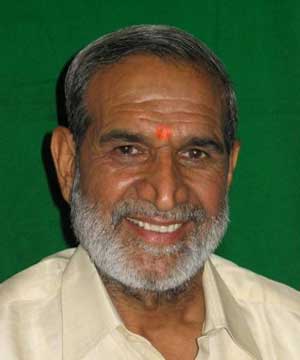A Delhi court has announced that the verdict in the 1984 anti-Sikh riots case involving former Congress MP Sajjan Kumar will be pronounced on January 8, 2025. The case pertains to the alleged killings of Jaswant Singh and his son, Tarundeep Singh, in the Saraswati Vihar area during the widespread violence that followed the assassination of then-Prime Minister Indira Gandhi.
Special Judge Kaveri Baweja, who had initially scheduled the decision for December 16, 2024, postponed the pronouncement, stating, “January 8 is the next date.”
Sajjan Kumar and His Role in the Case
Sajjan Kumar, currently lodged in Delhi’s Tihar Jail, appeared before the court via video conference. This case is part of a broader investigation into the 1984 anti-Sikh riots, during which thousands of Sikhs were killed in one of independent India’s darkest chapters.
The specific allegations against Kumar stem from the events of November 1, 1984, when a violent mob allegedly attacked the residence of Jaswant Singh in Saraswati Vihar. According to the prosecution, the mob, armed with lethal weapons, looted and set fire to properties belonging to Sikhs. Tragically, Jaswant Singh and his son Tarundeep Singh were killed, while their house was reduced to ashes.
The case was originally registered at the Punjabi Bagh police station but was later taken over by a special investigation team (SIT), which re-examined evidence and brought Kumar to trial.
Charges and Evidence Against Sajjan Kumar
The Delhi court framed charges against Sajjan Kumar on December 16, 2021, determining there was “prima facie evidence” of his involvement. The court noted that Kumar was not just a participant but allegedly played a leadership role in inciting and directing the mob.
The prosecution argued that the mob’s actions were driven by a desire to avenge Indira Gandhi’s assassination by her Sikh bodyguards. Large-scale violence erupted across Delhi, with targeted attacks on Sikh homes and businesses. Kumar, a prominent Congress leader at the time, has been accused of using his influence to instigate the mob and enable the violence.
A Decades-Long Legal Battle
This case is one of many linked to the 1984 anti-Sikh riots that have seen protracted legal proceedings over the decades. While several individuals have been convicted in recent years, Sajjan Kumar’s trial has drawn significant public attention due to his political stature.
In 2018, the Delhi High Court sentenced Kumar to life imprisonment in another case related to the riots, overturning a trial court’s earlier acquittal. The Central Bureau of Investigation (CBI) had appealed against the acquittal, leading to his conviction.
The current trial, however, revolves around a separate incident involving the deaths of Jaswant Singh and his son. The SIT has built its case on witness testimonies, forensic evidence, and Kumar’s alleged role in leading the mob.
Impact and Significance
The impending verdict is expected to have significant implications, both legally and politically. The 1984 anti-Sikh riots remain a sensitive issue in India, with survivors and Sikh communities repeatedly demanding justice for the victims. For decades, activists have alleged that political leaders, including Kumar, played a key role in orchestrating the violence but were shielded by their influence.
A conviction in this case could further solidify Kumar’s status as one of the primary figures held accountable for the riots. Conversely, an acquittal might reignite debates about the efficacy of India’s judicial system in addressing crimes against minority communities.
Background on the Anti-Sikh Riots
The anti-Sikh riots of 1984 were triggered by the assassination of Prime Minister Indira Gandhi on October 31, 1984. Gandhi was killed by her Sikh bodyguards in retaliation for Operation Blue Star, a military operation to flush out militants from the Golden Temple in Amritsar, Punjab, earlier that year.
In the days that followed her assassination, violence erupted across the country, with Delhi witnessing the most brutal attacks. Official figures estimate that nearly 3,000 Sikhs were killed, though activists and community leaders argue that the real number is much higher.
Awaiting Justice
For the families of victims like Jaswant Singh and Tarundeep Singh, the January 8 verdict represents yet another moment of hope in their decades-long quest for justice. While the judicial process has been slow, recent convictions of high-profile individuals like Sajjan Kumar have renewed faith among survivors and their advocates.
As the court prepares to deliver its judgment, the spotlight once again falls on the events of 1984 and the accountability of those in positions of power during that time. The verdict could mark another step toward closure for the victims’ families and the broader Sikh community.
The road to justice for the survivors of the 1984 anti-Sikh riots has been long and arduous, but cases like these keep the memories alive, ensuring the pursuit of justice continues unabated.






